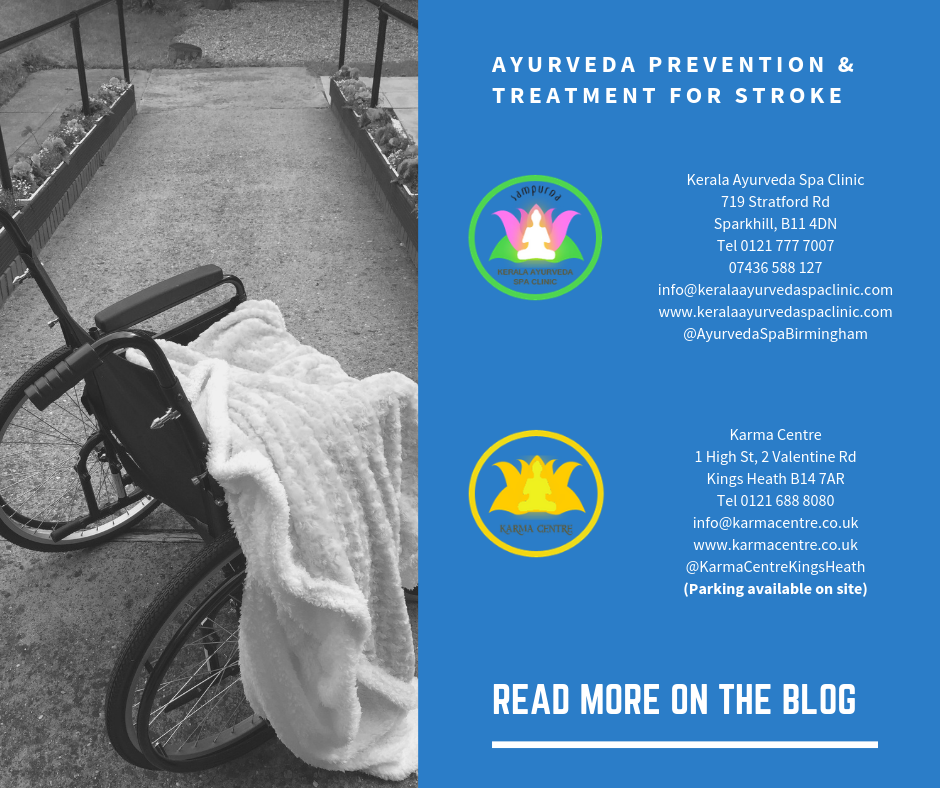
Ayurveda basics definition
Stroke is the sudden loss of function in a part of the brain. It normally results in difficulty moving an arm or leg which is referred to as paralysis. The person’s sensations may be affected.
Causes
It is thought to be due to contraction of a blood vessel to brain. Factors that contribute are high blood pressure, family history, hardening of the arteries, diabetes, obesity and smoking. The Ayurvedic texts attribute such condition to a blockage of Vata movement. The two types are: Ischaemic – where the blood supply is stopped because of a blood clot and Haemorrhagic – where a weakened blood vessel supplying the brain bursts.
Treatment plan
Treatment depends on the type of stroke you have, including which part of the brain was affected and what caused it. Treatments should be so to prevent and dissolve blood clots, reduce blood pressure and reduce cholesterol levels. A patient who suffers paralysis due to stroke for longer than a year requires more extensive treatment. This is because part of the body has been inactive for so long that the muscles start to waste away.
Consultation
Ayurvedic Consultation with a qualified and experienced Ayurvedic Doctor is necessary.
Diet
Drinking Black or Green tea, eating Fruits and vegetables for example Pomegranate. More info can be given after consultation.
Therapies
Internal and external therapies include Snehana, Swedana, Virechana. Medication can help regain strength of muscles as well as overall immunity.
Supplements
Anti-vaata drugs are used for treatment. Herbal supplements are a popular choice for people who prefer natural remedies. Herbal supplements may improve blood circulation in the brain and help prevent another stroke. Herbs such as Ashwagandha, Bilberry, Garlic, Turmeric are all good if there are no other complications.(Avoid these supplements if you’re taking warfarin (Coumadin), aspirin, or any other blood-thinning medications) Always ask your doctor first before taking any additional supplements.
Uncontrollable risk factors
Uncontrollable risk factors are: age, gender, race, a family history of stroke, a personal history of stroke.
Controllable risk factors
Common controllable risk factors for stroke include: the use of alcohol or drugs, such as cocaine, a lack of exercise or physical activity, smoking, a poor diet, an unhealthy weight, diabetes, stress, depression, unhealthy cholesterol levels, high blood pressure.
Prevention
Self Help Yoga and Tai Chi, Managing your weight, Managing stress, Massages can help increase blood flow to an affected area, Aromatherapy.
Disclaimer
This information is not intended for use in the diagnosis, treatment, cure or prevention of any disease. If you have any serious acute or chronic health concern, please consult a trained health professional who can fully assess your needs and address them effectively.

